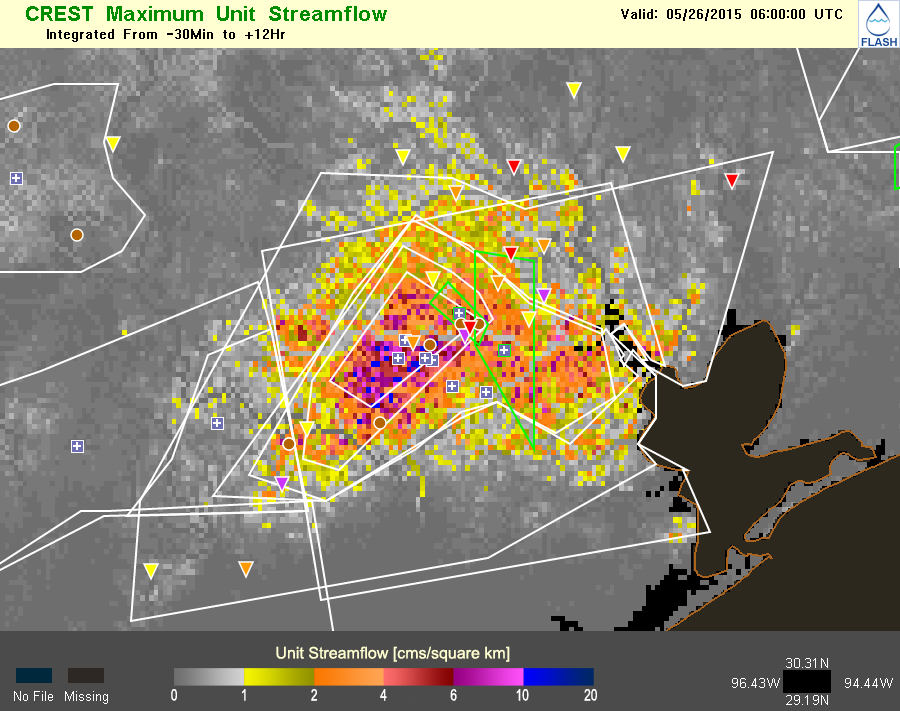Maximum Unit Streamflow - Warning Decision Training Division (WDTD)
Navigation Links
Products Guide
Maximum Unit Streamflow
Short Description
Normalization of the maximum streamflow product by basin area at every grid point from a period of 30 minutes prior to model runtime out to 12 hours after model runtime
Subproducts
CREST, SAC-SMA, and Hydrophobic. The FLASH EF5 framework runs multiple hydrological models using a common input. For MRMS Version 12, there is a maximum unit streamflow product for each of the 3 models listed here.
Primary Users
NWS: WFO, RFC
Input Sources
MRMS Radar-Only QPE
Resolution
Spatial: ~1 km x 1 km
Temporal: 10 minutes
Product Creation
The FLASH EF5 model framework uses MRMS Radar-Only QPE as input into the 3 hydrological models (CREST, SAC-SMA, and Hydrophobic) which then use a subset of these hydrological principles (infiltration, storage, interflow, evapotranspiration, and runoff) to route the precipitation through the basins. The maximum water flow that occurs at any time in each grid point during the model run from a period of 30 minutes prior to model runtime through 12 hours after model runtime is normalized by the basin area and then assigned to each grid point.
Technical Details
Latest Update: MRMS Version 12
NOTE: In version 12, all FLASH products now use the instantaneous rainfall rates from the Dual-pol radar synthetic QPE product.
Accessible on:
- Operational AWIPS
- V11.5 -- MRMS menu
- V12 -- via LDM, if set-up
- MRMS Development site
References
Gourley, J., Z. Flamig, H. Vergara, P. Kirstetter, R. Clark III, E. Argyle, A. Arthur, S. Martinaitis, G. Terti, J. Erlingis, Y. Hong, and K. Howard, 2016: The Flooded Locations And Simulated Hydrographs (FLASH) project: improving the tools for flash flood monitoring and prediction across the United States. Bull. Amer. Meteor. Soc. doi:10.1175/BAMS-D-15-00247.1, in press.
Jiahu Wang, Yang Hong, Li Li, Jonathan J. Gourley, Sadiq I. Khan, Koray K. Yilmaz, Robert F. Adler, Frederick S. Policelli, Shahid Habib, Daniel Irwn, Ashutosh S. Limaye, Tesfaye Korme & Lawrence Okello (2011) The coupled routing and excess storage (CREST) distributed hydrological model, Hydrological Sciences Journal, 56:1, 84-98, DOI: 10.1080/02626667.2010.543087




